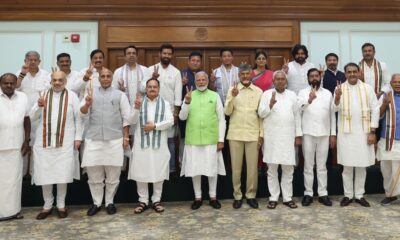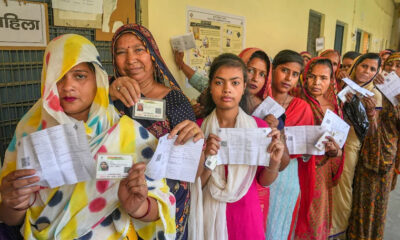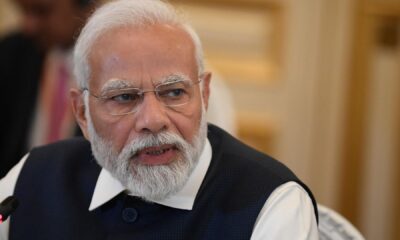india
‘Overconfidence’ Trends as BJP Misses 400-Plus Target in Lok Sabha 2024
BJP’s overconfidence in Lok Sabha Elections 2024 trends on X as the party falls short of its 400-plus seat target. Social media users weigh in on the political fallout.
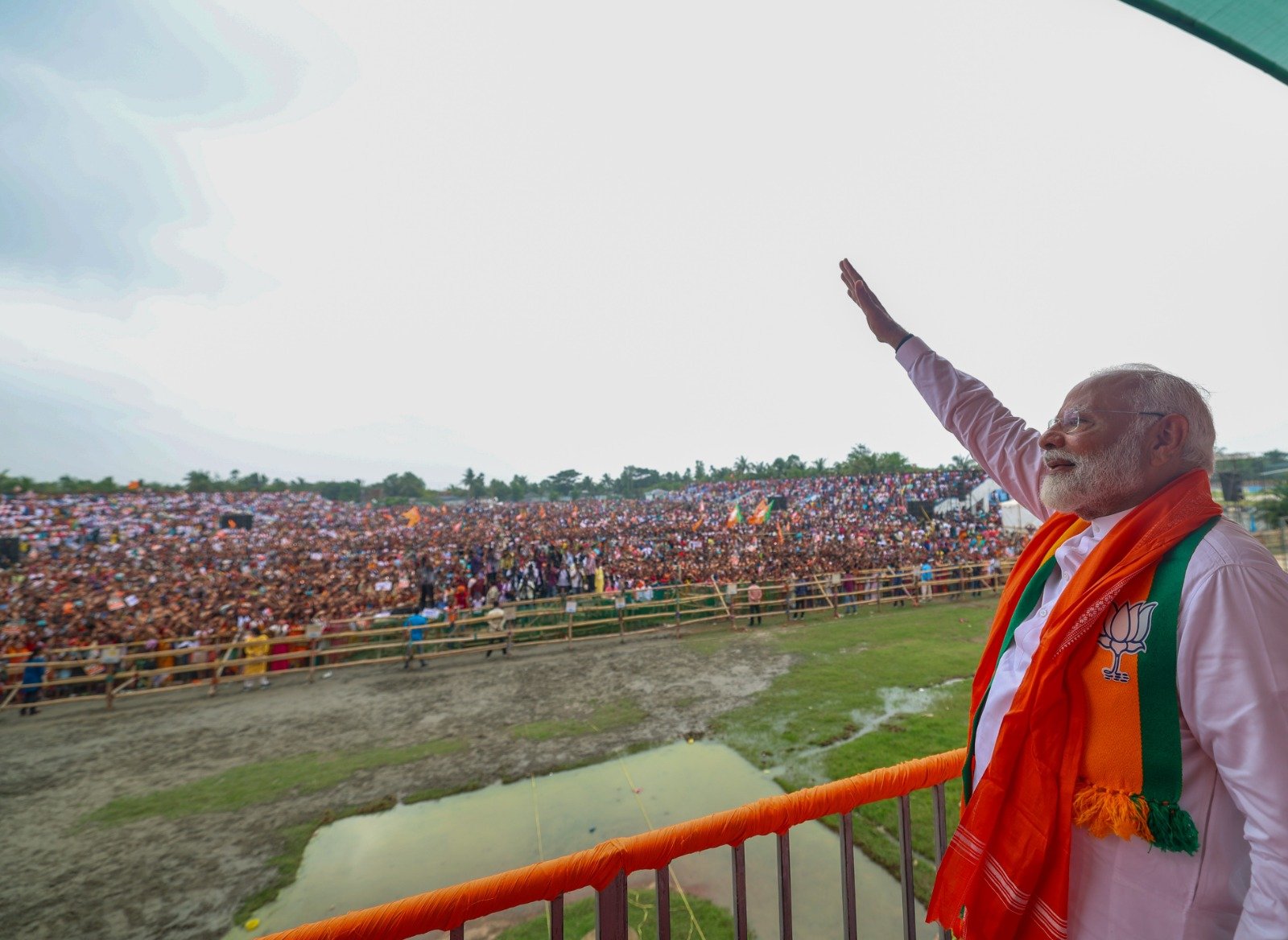
#Overconfidence trended on microblogging platform X, formerly known as Twitter, as the Bharatiya Janata Party (BJP)-led National Democratic Alliance (NDA) fell short of their ambitious 400-plus seat target in the vote-counting trends for the Lok Sabha elections 2024. Throughout the election campaign, the BJP exuded confidence in surpassing this threshold, but early results indicated a significant setback for the ruling party.
Among the most notable setbacks for the BJP, a party renowned for its dominance in the Hindi heartland, was its performance in Uttar Pradesh. The Opposition bloc, INDIA, crossed the halfway mark in trends in this crucial state. Uttar Pradesh holds significant weight in general elections due to its substantial seat share of 80 in the Lok Sabha. The surprising trend was a major talking point on social media, with users quick to point out the BJP’s miscalculation.
A particularly high-profile race was in Amethi, where BJP’s sitting MP Smriti Irani, who had famously defeated Congress leader Rahul Gandhi in the 2019 Lok Sabha elections, found herself trailing this time to Congress candidate Kishori Lal. This race garnered considerable attention, symbolizing the broader challenges faced by the BJP in this election cycle.
Social media platforms were inundated with posts suggesting that the NDA had been “overconfident” in their projection of securing over 400 seats in the 543-seat Lok Sabha. One user on X shared an image of the vote-counting trends, where the BJP was significantly behind their target, captioning it, “India’s Next Prime Minister Narendra Modi Overconfidence ache ache ko dooba deta hai, be humble when you in power.” This sentiment was echoed widely, with many users attributing the BJP’s underperformance to an overestimation of their electoral strength.
Another user wrote, “The slogan of 400 par made BJP voters complacent & made them sit at home in overconfidence. A lesson for BJP also that overconfidence is not good in long run.” This perspective highlights a common belief that the BJP’s confidence may have led to voter apathy among their supporters, impacting turnout and, consequently, results.
“This should be a wake-up call for the BJP, which handed tickets to just about anybody, relying on Yogi and Modi’s names. SP, however, picked some quality contenders,” another user commented. This critique points to potential strategic errors in candidate selection, suggesting that the BJP may have relied too heavily on the popularity of high-profile leaders like Yogi Adityanath and Narendra Modi, without ensuring the quality of individual candidates.
The conversation on X reflected a broader narrative about the dangers of overconfidence in politics. Many users felt that the BJP’s assuredness led to a complacency that was capitalized on by the opposition. The performance in key states like Uttar Pradesh, along with high-profile defeats, painted a picture of a party that perhaps took its dominance for granted.
In the days leading up to the election, the BJP had projected an air of inevitability regarding their victory. Campaign rhetoric frequently emphasized the party’s expectation to not just win but to win big. This confidence, while potentially motivating to some supporters, may have also contributed to a backlash among voters who felt neglected or taken for granted.
The results and the ensuing social media reaction serve as a reminder of the volatile nature of democratic elections. Overconfidence can lead to strategic missteps, and in a closely contested election, every vote counts. For the BJP, the 2024 Lok Sabha elections have provided a crucial lesson in the importance of humility and the dangers of complacency.
As the final results come in and the BJP assesses its performance, it will be essential for the party to address the concerns raised by both their supporters and critics. The feedback from social media underscores the need for a more grounded approach in future elections, one that values every voter and candidate equally.
In conclusion, the 2024 Lok Sabha elections have highlighted the perils of overconfidence in political campaigns. The BJP’s initial failure to meet its own expectations has sparked a significant conversation on social media, offering valuable insights into voter behavior and the importance of strategic humility. As the political landscape continues to evolve, the lessons from this election will likely shape future strategies for the BJP and other parties alike.
Karnataka
Karnataka BJP Kicks Off Overnight Protest Against Price Hikes and Muslim Quota
Led by BJP’s state president Vijayendra, the demonstration targets the Congress-led government’s recent price hikes and its controversial decision to introduce a 4% reservation for Muslims […]

Bengaluru, Karnataka: The political air in Karnataka is buzzing as the Bharatiya Janata Party (BJP) launched an overnight protest at Freedom Park in Bengaluru on Wednesday, April 2, 2025. Led by state president BY Vijayendra, the demonstration targets the Congress-led government’s recent price hikes and its controversial decision to introduce a 4% reservation for Muslims in government contracts. With emotions running high, this protest marks a bold stand against what the BJP calls a “burden on the people.”
The protest kicked off at 11 a.m. and stretched into the night, with Vijayendra slamming the Siddaramaiah government for making life tougher for everyday citizens. He pointed to the recent Rs 4 increase in Nandini milk prices—now the third hike since Congress took charge—as an “Ugadi gift” that’s left families struggling. “This government promised relief but delivered only rising costs,” Vijayendra said, vowing to keep the pressure on until the hikes are rolled back.
A Fight Against Rising Costs and Policy Shifts
The BJP isn’t stopping at milk prices. Vijayendra accused the government of jacking up water tariffs, petrol costs, and more, hitting the poor and farmers the hardest. He also took aim at the 4% quota for Muslims in public contracts, labeling it “unconstitutional” and a move that sidelines other backward classes like SCs, STs, and OBCs. “This isn’t about fairness—it’s about appeasement politics,” he argued, promising a statewide awareness campaign starting April 10 to rally public support.
The protest saw a strong turnout, with BJP MLAs, MLCs, former legislators, and district leaders joining in. Vijayendra stressed that this is just the beginning, with plans for demonstrations across all district centers on April 4 and taluk-level protests on April 5. “We’re here to fight for the people, not just make noise,” he added, urging the government to rethink its policies.
A Divided Response
While the BJP rallies its base, the Congress government defends its actions. The milk price hike, they say, supports dairy farmers by covering rising production costs, with Karnataka Milk Federation (KMF) Chairman Bheema Naik noting that prices here are still lower than in states like Gujarat or Delhi. On the Muslim quota, the government insists it’s based on socio-economic backwardness, not religion, aligning with long-standing policies under previous administrations.
Yet, the BJP remains unconvinced, accusing Congress of playing the minority card to win votes. The tension spilled into the streets of Bengaluru, with protesters chanting slogans and holding signs, creating a lively yet tense atmosphere. Police kept a close watch, ensuring the demonstration stayed peaceful as traffic flowed nearby and shops stayed open.
What’s Next for Karnataka?
This overnight protest is more than a one-night stand—it’s a signal of bigger battles ahead. With the BJP gearing up for a statewide movement, and the Congress digging in, Karnataka’s political scene is heating up. Residents are left wondering: Will the government back down, or will this spark a longer fight? For now, the focus is on Freedom Park, where voices of dissent echo into the early morning.
Stay tuned as this story develops. Whether it’s about your grocery bill or community rights, this protest could shape Karnataka’s future. Keep checking for the latest updates on price hikes, Muslim quota debates, and more!
india
Waqf Amendment Bill Heads to Rajya Sabha Today After Lok Sabha Approval
New Delhi: After a heated debate and a late-night vote in the Lok Sabha, the Waqf (Amendment) Bill, 2025, is set to take center stage in the Rajya Sabha on Thursday, April 3, 2025. The bill, which stirred up quite a storm in the Lower House, passed with 288 votes in favor and 232 against […]

New Delhi: After a heated debate and a late-night vote in the Lok Sabha, the Waqf (Amendment) Bill, 2025, is set to take center stage in the Rajya Sabha on Thursday, April 3, 2025. The bill, which stirred up quite a storm in the Lower House, passed with 288 votes in favor and 232 against after more than 12 hours of discussion that stretched into the early hours. Now, it’s the Upper House’s turn to weigh in, and people across India are watching closely.
The Lok Sabha debate kicked off Wednesday afternoon and didn’t wrap up until the clock was nearing 2 a.m. Lawmakers from all sides dug into the details, with the ruling National Democratic Alliance (NDA) pushing hard for the bill’s passage. Alongside the Waqf Bill, the Lok Sabha also greenlit a resolution supporting President’s Rule in Manipur—a busy night, to say the least.
What’s on the Rajya Sabha Agenda?
Today, Union Home Minister Amit Shah is expected to bring the Waqf Amendment Bill to the Rajya Sabha floor. He’ll also move a resolution to confirm President’s Rule in Manipur, which was imposed on February 13, 2025, under Article 356(1) of the Constitution. The Upper House has carved out eight hours for this debate, so buckle up—it’s going to be another long one.
Meanwhile, over in the Lok Sabha, Thursday’s lineup includes the Coastal Shipping Bill, 2024, presented by Minister Sarbananda Sonowal. There’s also a statement from Minister Dr. Chandra Sekhar Pemmasani about pulling funds from the Contingency Fund of India to cover interest on Sovereign Guarantee Bonds for Mahanagar Telephone Nigam Limited (MTNL). It’s a packed day for Parliament as the Budget Session nears its end on April 4.
Why the Waqf Bill Matters
The Waqf (Amendment) Bill aims to shake up how Waqf boards—bodies that manage properties dedicated to religious and charitable causes in the Muslim community—are run. The government says it’s all about boosting transparency and efficiency, but not everyone’s on board. Opposition parties have called it “unconstitutional” and a direct attack on minority rights, sparking protests and fiery exchanges in Parliament.
After the Lok Sabha gave its nod, the bill now faces the Rajya Sabha test. With the NDA holding a strong majority in both houses, the government’s confident it’ll sail through. Still, the opposition isn’t backing down, promising to fight tooth and nail to protect what they see as a cornerstone of India’s secular fabric.
A Late-Night Victory in Lok Sabha
The Lok Sabha session was anything but quiet. Opposition members slammed the government’s handling of Manipur, even as they supported the President’s Rule resolution. Amit Shah defended the Centre’s efforts, saying every step has been taken to restore peace in the troubled northeastern state. By the time the Waqf Bill vote rolled around, the tally—288 for, 232 against—showed the NDA’s numbers held strong.
For many, the bill’s passage feels like a turning point. Supporters say it’ll modernize Waqf property management, while critics fear it’s a step toward centralizing control and sidelining Muslim voices. Either way, the Rajya Sabha debate today will likely set the tone for what’s next.
What’s at Stake?
This isn’t just about a bill—it’s about trust, governance, and how India balances its diverse communities. The Waqf Amendment Bill has already sparked nationwide conversations, from political rallies to social media buzz. As it heads to the Rajya Sabha, all eyes are on how lawmakers will shape its future—and what it means for the country.
india
Lok Janshakti Party Backs Waqf (Amendment) Bill: A Push for Transparency and Muslim Welfare
On Wednesday, the Lok Janshakti Party (Ram Vilas), a key ally of the Bharatiya Janata Party (BJP), voiced strong support for the Waqf (Amendment) Bill.
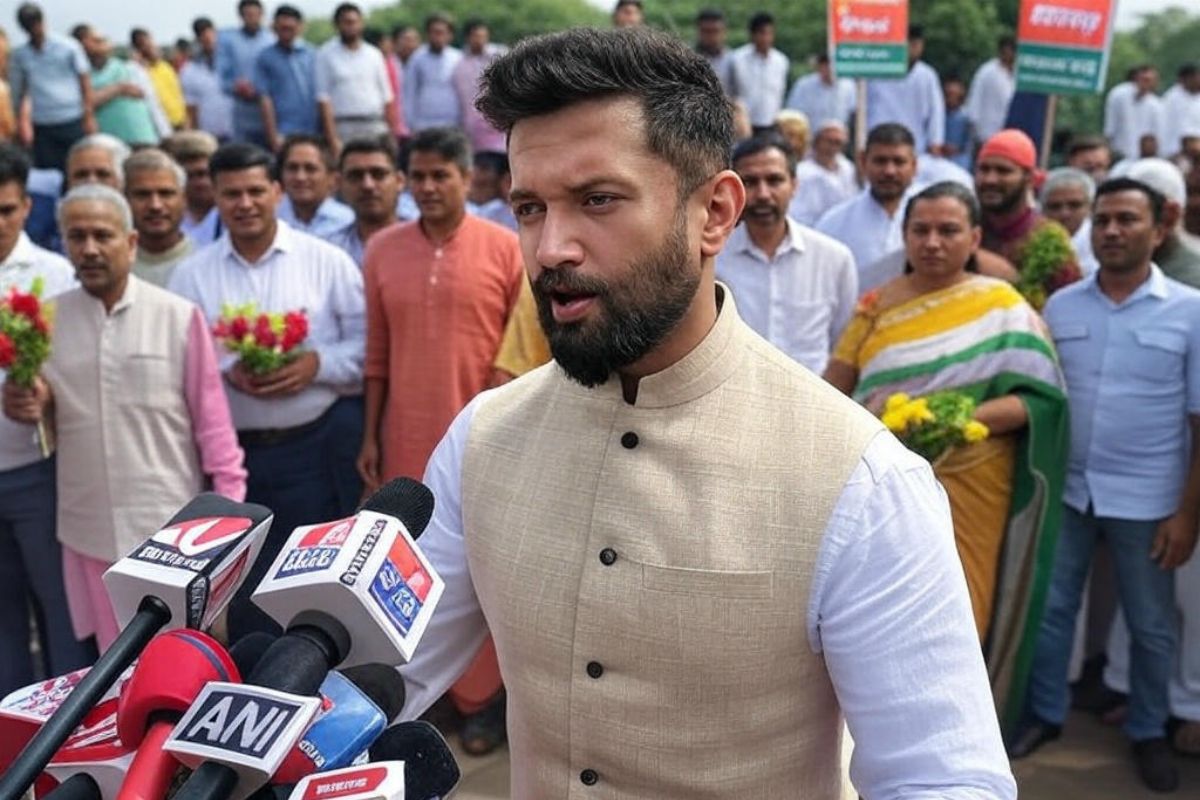
On Wednesday, the Lok Janshakti Party (Ram Vilas), a key ally of the Bharatiya Janata Party (BJP), voiced strong support for the Waqf (Amendment) Bill. Far from targeting any religion or community, the party insists this bill is about managing properties to improve the lives of Muslims across India.
Lok Janshakti Party’s Arun Bharti Pushes for Waqf Bill Transparency and Thorough Scrutiny
In a heated Lok Sabha debate, LJP (Ram Vilas) MP Arun Bharti championed the bill as a tool for transparency and accountability. He criticized the opposition for zooming in on the religious side of Waqf—charitable endowments created by Muslims—while ignoring its social, legal, financial, and administrative potential.
Unlike Bihar’s Janata Dal (United), which has been more reserved, the LJP has taken a thoughtful yet firm stance. Bharti pointed out that party leader and Union Minister Chirag Paswan had demanded a deep dive into the bill when it was introduced last August, urging it be sent to a parliamentary committee for review.
Opposition Accused of Fearmongering
Bharti didn’t shy away from slamming opposition parties, accusing them of scaring Muslims with claims that the government wants to snatch their religious properties. He called it a vote-bank tactic, arguing that these parties dodge the real issues—like Muslim backwardness and the poor management of Waqf properties nationwide.
To put things in perspective, he shared a jaw-dropping stat: tiny Singapore earns Rs 42 crore from its Waqf properties, while India lags at just Rs 163 crore. Bharti also nodded to countries like Turkey, Egypt, Tunisia, and Algeria, where Waqf reforms have turned these assets into engines of progress.
A Vision for Inclusion
At its core, Bharti said, the bill is about lifting up poor and marginalized Muslims and bringing them into the national fold. He expressed dismay that Muslim clerics have attacked Chirag Paswan for supporting it, despite his family’s track record. Bharti recalled how Paswan’s father, Ram Vilas Paswan, risked his party’s survival in 2005 to back a Muslim chief minister in Bihar.
Why This Matters
The LJP (Ram Vilas) sees the Waqf (Amendment) Bill as a chance to spark fairness and growth—not division. With a people-first mindset, they’re pushing for an open, honest dialogue about how Waqf properties can better serve communities nationwide.
-

 india2 years ago
india2 years ago“Major Crash of Sukhoi Su-30 and Mirage 2000 Fighter Jets in Madhya Pradesh”
-

 Sports2 years ago
Sports2 years agoWFI meetings on April 16, elections likely to be discussed
-

 india1 year ago
india1 year agoPM Modi Meets Deve Gowda for Seat Sharing Talks
-

 india1 year ago
india1 year agoBengaluru: False threat to bomb Raj Bhavan
-

 india2 years ago
india2 years ago“AIMIM to Contest 50 Seats in Upcoming Telangana Assembly Elections”
-

 Entertainment1 year ago
Entertainment1 year agoAnant Ambani: Controversy at the Ambani Pre-Wedding Bash
-

 Entertainment2 years ago
Entertainment2 years agoRajinikanth is Moideen Bhai in ‘Lal Salaam’
-
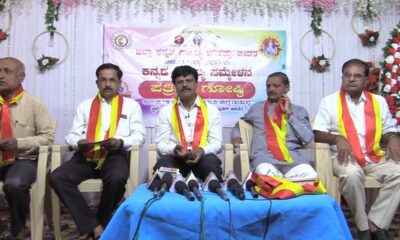
 Videos2 years ago
Videos2 years agoBidar News : Press Meet Organized By Zilla Kannada Sahitya Parishad





